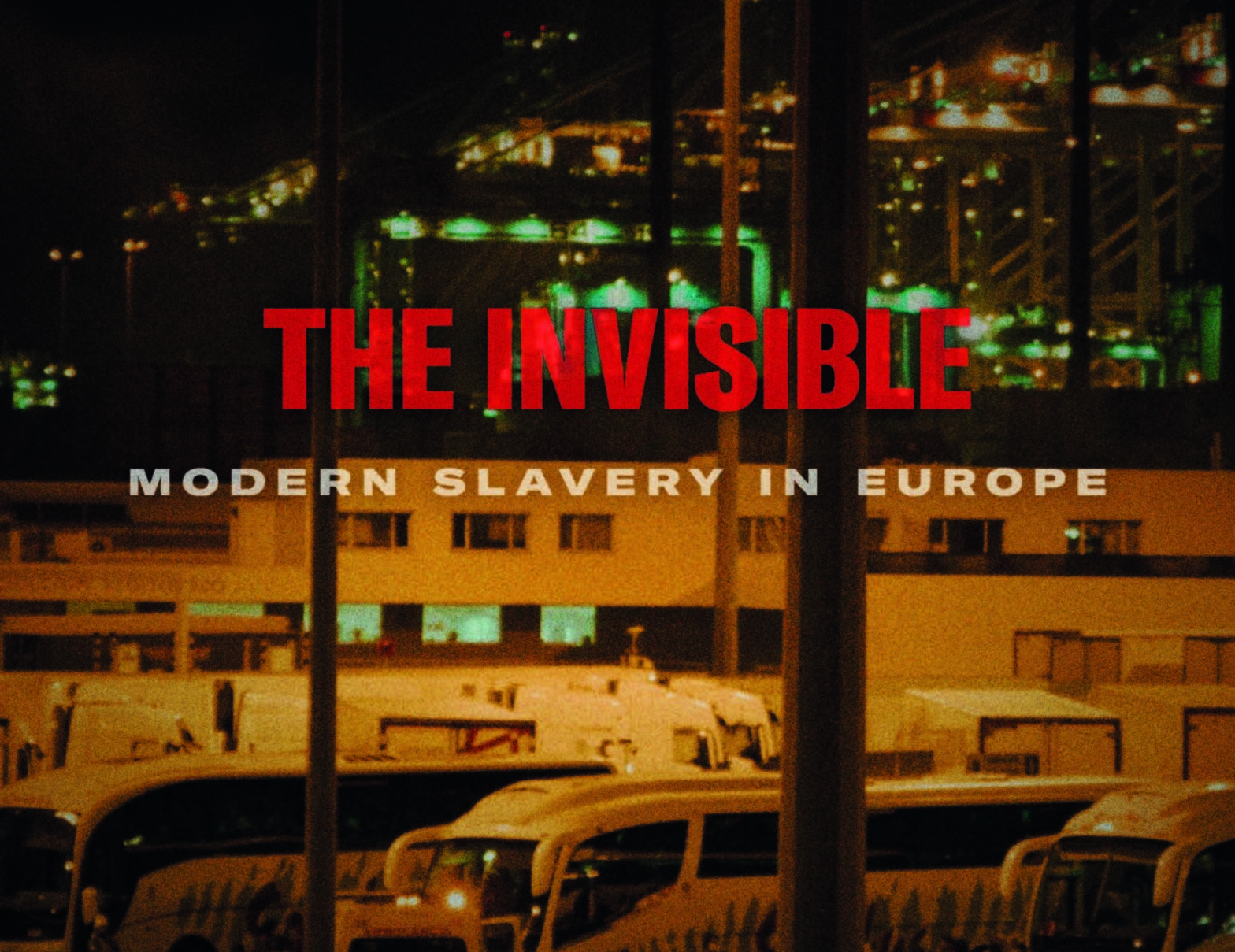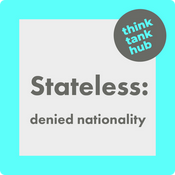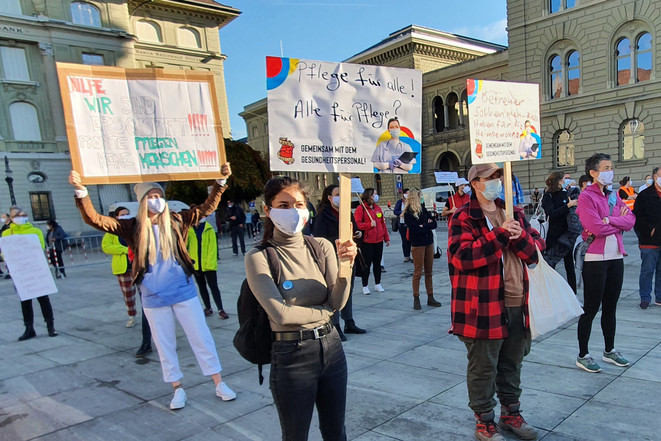Share Twitter Facebook Email Copy URL
Non-take-up: a global challenge
More than two years have passed since the onset of the global Covid-19 pandemic. At the time, governments scrambled to respond by issuing cash transfers, unemployment benefits, and in-kind support for their citizens. But many – millions, in fact – were left behind, despite being eligible for the support on offer.
This phenomenon is known in academia as “non-take-up”: a situation in which eligible individuals or households do not ultimately enjoy the entitlements which are theirs by right. My recent report to the UN Human Rights Council examines this issue in detail.
Non-take-up is not a marginal issue. Existing estimates of the proportion of people who do not benefit from the social protection mechanisms designed to help them mostly focus on the Global North –but they show that non-take-up can take monumental proportions.
As my report shows, non-take-up rates sit at above 40% for most social protection schemes studied in the European Union. This means that for every ten people eligible for a social protection benefit, four are left empty-handed. And these figures are often higher. In the case of the material need scheme in Slovakia, for example, nearly 80% of eligible beneficiaries do not end up receiving it. In Germany, the rate of non-take-up of means-tested benefits was found to be more than 50% between 2005 and 2014.
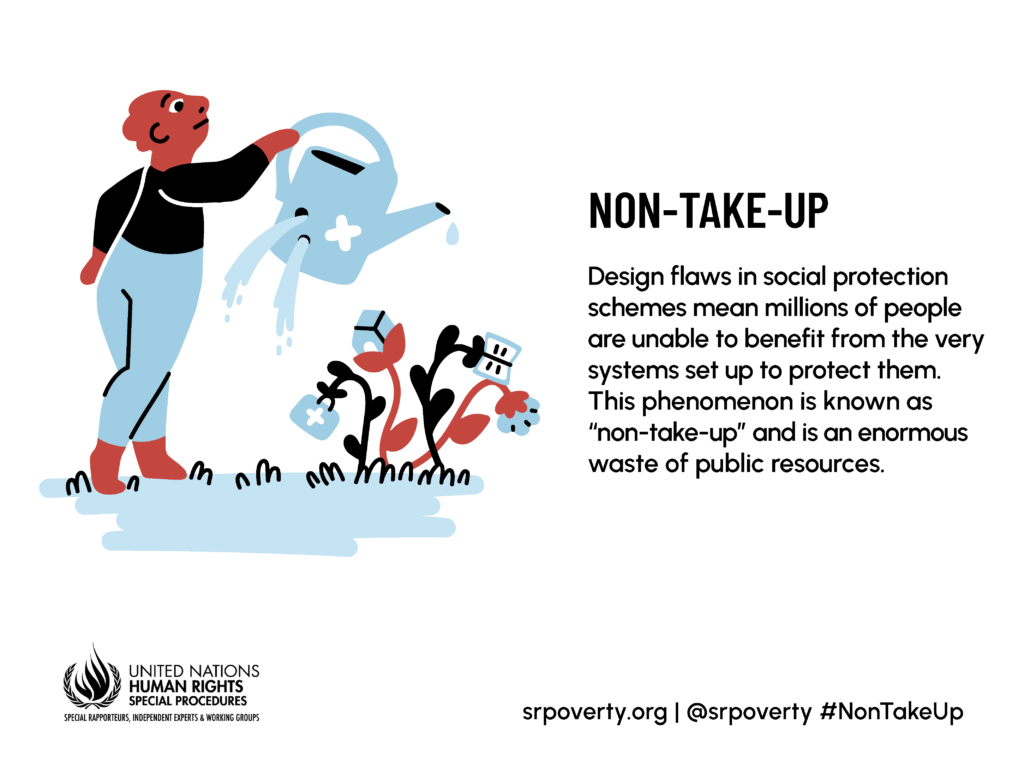
The crushing costs of non-take-up
Such high rates of non-take-up seriously hamper the potential of social protection to reduce poverty and inequality. Although governments may earmark funding for minimum income schemes or other types of social protection benefits, a large proportion of those resources are often left unspent. In France, for example, 750 million euros devoted to the revenue de solidarite active are left unspent each trimester. In Canada, an estimated Can$1 billion of federal funding remains unused every year, largely due to the non-take-up of benefits by potential recipients particularly at risk of poverty, including members of First Nations.
This is an enormous waste of public resources. It also has consequences at the individual level, reducing household income for those most in need. As a result, individuals may face deeper poverty and isolation, food insecurity, and difficulties in paying for basic goods and services. They may also experience increased mental health issues, including heightened levels of anxiety. In the UK, for example, levels of anxiety during the pandemic were found to be significantly higher among those who did not seek to claim, and those who thought they were ineligible for, Universal Credit, compared to anxiety levels among the general public.
At the same time, society as a whole pays a high price for failing to direct social protection to those who need it the most. In the long run, governments and the societies they govern will have to make up for leaving vulnerable groups behind through increased expenditures on health care and anti-poverty programs. A UK study found that if take-up of the country’s Pension Credit scheme was increased to 100%, £4 billion could be saved in public spending.
The message is clear: social protection is not a cost. It is an investment in the health and well-being of society, ensuring that households are protected from shocks and risks, and allowing them to access essential services such as healthcare and education. Non-take-up represents a major failure of social protection systems to reach those individuals and groups that would benefit from additional support to flourish, or sometimes even just survive.
The design flaws in social protection
To understand why so many millions of people are unable to access their rights, my team and I conducted a survey in 36 countries across all world regions. We asked experts and academics, international organizations and UN bodies, civil society organizations and non-governmental organizations, as well as the ministries and administrations responsible for the design and delivery of social protection, to share their views on the reasons behind non-take-up.
Globally, our results show that “complex application procedures” – such as complicated application forms, or needing to gather multiple documents – are a key perceived reason for which persons that are eligible for social protection schemes do not apply to them. A lack of information; firstly about the benefits themselves, and secondly how to apply to them, are also key contributing factors to non-take-up. In other words, public information is lacking, insufficient, or of poor quality, and people do not apply for benefits because they know too little about them.
We also asked respondents to suggest why people who make it through these initial hurdles and take the necessary steps toapply for social protection schemes do not end up benefitting from them.
The first major obstacle identified was the lack of public funds allocated to social protection. In some countries, individuals eligible for social protection benefits will not receive them because insufficient public budgets mean not every applicant can be covered by the scheme. In Brazil’s much-touted Bolsa Familia program, for example, a limit was placed on public funds available at the municipal level. Once the fixed quota was filled, families were denied access to the scheme, effectively leading to non-take-up. Further obstacles included physical and technological barriers that prevent individuals from effectively receiving benefits (e.g. problems with transportation, not having a bank account, not being able to access or navigate the internet), as well as the lack of, or unclear, appeals procedure against an administrative decision to reject an application.
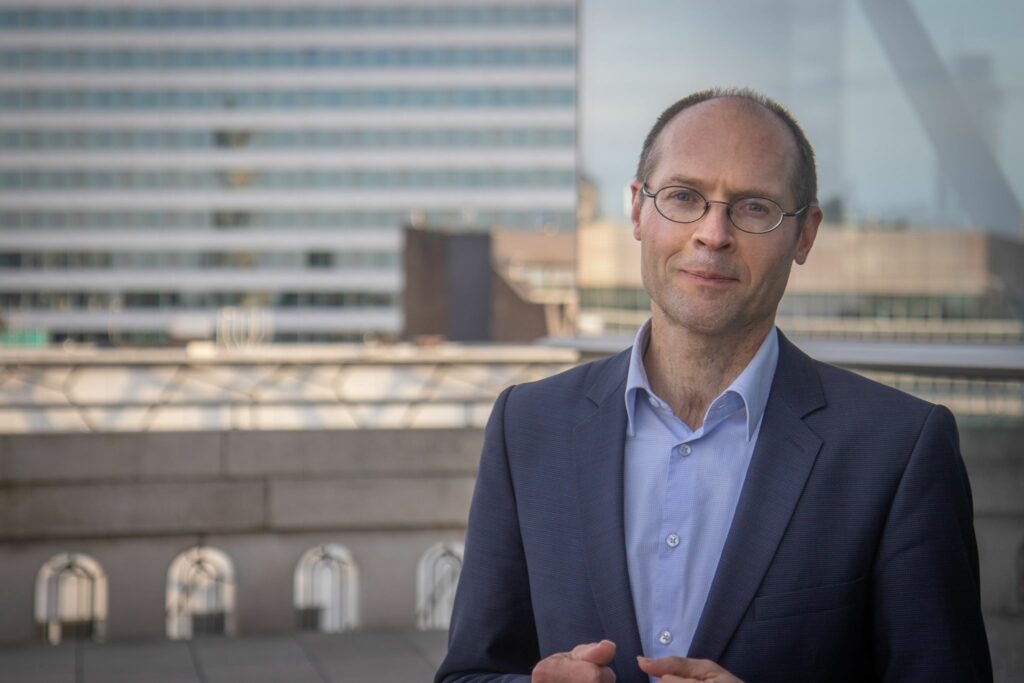
Non-take-up: whose responsibility?
Despite the prevalence of non-take-up, the use of the term remains largely confined to academic circles. In the survey we conducted among organizations, experts and government officials, less than half of respondents were familiar with the expression. Other descriptions of the situations in which people eligible for social protection benefits do not end up receiving them include “non-participation” or “non-inclusion”, “unfair denial of rights and entitlements”, or “deprivation of social protection services or programs”.
While the term “non-take-up” is succinct and has academic resonance, it may also be misleading. Indeed, “non-take-up”, or non-recours in French implies that the individual is not taking up his or her rights. To a certain extent, it suggests that lack of access to social protection schemes is a deliberate choice, and it places responsibility on the individual.
Which brings me to the question of responsibility: whose responsibility is it to combat non-take-up?
My report focuses – above all – on the obligations of the State. Indeed, as I write:
“The right to social security, as developed by the Committee on Economic, Social and Cultural Rights, has very practical implications: it implies a duty to proactively provide information to rights holders about the benefits to which they are entitled, simplify application procedures, sufficiently fund programs so that all eligible individuals can benefit from them, fight corruption in service delivery, refrain from imposing conditions that are stigmatizing and humiliating, and provide clear and accessible appeals procedures to rectify mistakes made by public administrations. The right to social security does not stop at the provision of social protection on paper: it must translate into effective coverage and take-up of rights in practice.”
While governments hold ultimate responsibility for ensuring the effectiveness, efficiency and equity of the social protection programs they design and deliver, they must – of course – partner with other members of society to achieve these goals. Rather than working in silo, advised by technocrats and consultants alone, governments should learn from civil society organizations and from persons experiencing poverty themselves.
People in poverty have valuable knowledge about what works and what doesn’t. When moving from rights on paper to rights in practice, the world cannot afford to ignore that knowledge.
Oliver De Schutter is the UN Special Rapporteur on extreme poverty and human rights
